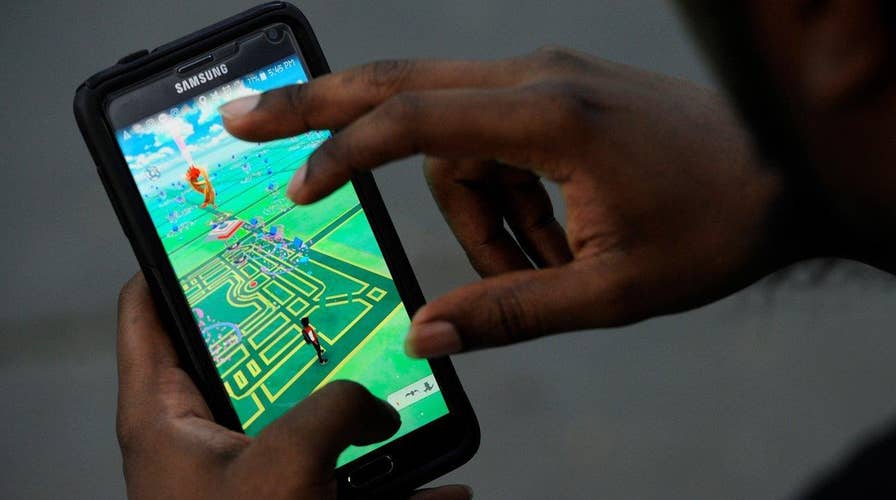How 'Pokemon Go' is taking the world by storm
Four4Four Tech: The 'Pokemon Go' phenomenon explained; password sharing in the spotlight, high-tech teddy keeps kids healthy, strange drone 'poops' sunscreen
Just a day after “Pokemon GO” sparked controversy as characters in the game appeared in somber locations like the United States Holocaust Memorial Museum and Arlington National Cemetery, a U.S. senator has called for the company that makes the game to give “greater clarity” about how it handles users’ security and privacy.
Sen. Al Franken, D-Minn., posted an open letter to the CEO of Niantic, John Hanke, Tuesday, asking for more information from the game-maker. Pointing out that “Pokemon GO” has been downloaded about 7.5 million times, Franken stated in the letter that he was “concerned about the extent to which Niantic may be unnecessarily collecting, using, and sharing a wide range of users' personal information without their appropriate consent.”
He continued by saying that he believed that “Americans have a fundamental right to privacy,” which includes the chance to make decisions about what data the game-maker collects and how it’s used.
The senator is concerned that the company has “access to a significant amount of information,” such as users’ locations, he wrote in the letter.
Franken, who asked for a response from Hanke by Aug. 12, concludes the missive by asking seven questions of the game-maker, all related to what data the game collects, whom it shares that data with, and how it handles the issue of parental consent when children are playing.
Related:
Of particular concern Tuesday was an issue related to "Pokemon GO" users who were on Apple’s iOS platform. Privacy concerns were raised due to the fact that the game was asking for “full access permission” to users’ Google accounts who logged on through that service.
According to Business Insider, Niantic said in a statement that asking for full permission was a mistake, and that “Pokémon GO only accesses basic Google profile information (specifically, your User ID and email address) and no other Google account information is or has been accessed or collected.” The company said in the same statement that it was working on a fix and that it only actually needed basic profile information.
In his final question, Franken addressed that issue, asking the company for more information. “Niantic has since recognized that it erroneously asked for more permissions [from a user’s Google account] than it intended,” Franken wrote. “Can you provide an update on any fix Niantic is seeking to correct this mistake?” The senator also wanted to make sure that the company had not “collected or stored” any information because of this error. (Niantic has not responded to a request from FoxNews.com for comment.)
“Pokemon GO” has become a sensation following its release earlier this month, simultaneously generating intense interest from users even as it has sparked controversy due to both the privacy concerns and the presence of characters in locations deemed inappropriate. An “augmented reality” game, it overlays characters from the world of the game into real-world locations.
But some of those real-world locations, like the Holocaust Museum in Washington, D.C. have not meshed well with the game. The Holocaust Museum is a location in the world of the game, the Washington Post reported Tuesday. "Playing the game is not appropriate in the museum, which is a memorial to the victims of Nazism," the museum’s communications director said, according to the Post, adding that they wanted to get the museum removed from the game-play.
A similar problem arose at Arlington National Cemetery, which said on Twitter that users of the game should not play it there.
Another negative of the game include the fact that it has allegedly been used in Missouri in connection with armed robberies. The O’Fallon Missouri Police Department wrote on Facebook that they believed thieves used the game to lure victims; it made four arrests associated with the crimes, it added on Sunday.
Despite the controversy, the game— which involves users capturing digital creatures— is a wildly popular phenomenon.
Follow Rob Verger on Twitter: @robverger

